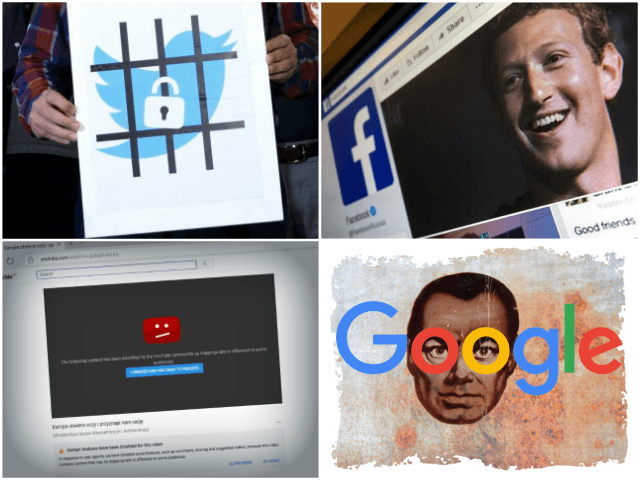Earlier this week, Republican Federal Trade Commissioner (FTC) Noah Phillips cast doubt on the idea of using antitrust law to tackle social media censorship. However, Prof. Adam Candeub, an expert on communications law at the University of Michigan, argues that Phillips is incorrect.
FTC commissioner Phillips defended tech giants as part of the “free press,” implying that they are publishers.
“In a democracy, with a free press, we need to be very careful about using tools of law enforcement to address problems like that,” Phillips told Politico on Tuesday.
This represents a different problem for companies like Facebook, Twitter, and YouTube, because if they were publishers rather than neutral platforms they would be legally responsible for every post made by their users.
Adam Candeub, professor of law and director of the intellectual property, information & communications law program at the University of Michigan, says that Commissioner Phillips is wrong in his categorization of social media platforms.
Prior to taking his position at the University of Michigan, Prof. Candeub was attorney-advisor for the Federal Communications Commission (FCC) in the media bureau.
“Social media platforms are the dominant communications platforms of our time,” Prof. Candeub told Breitbart News. From 19th century telegraphs to space-age communications satellites, government has always played a role to ensure that highly concentrated communications industries provide access to all and do not tilt in one way or the other.”
“I think it’s a mistake—both as a legal and policy matter—to assert that government is weaponless when faced with threats to the free market of ideas. And, that includes antitrust.”
Prof. Candeub cited a Supreme Court case from 1945, in which the Associated Press lost an antitrust case which alleged that the organization had violated the Sherman Act by prohibiting member newspapers from selling or providing news to nonmembers, and by making it too difficult for non-members to join the AP.
In its ruling, the Supreme Court wrote “freedom to publish means freedom for all and not for some. Freedom to publish is guaranteed by the Constitution, but freedom to combine to keep others from publishing is not.” Associated Press v. United States, 326 US 1, 20 (1945).
Candeub said that social media platforms may also be engaged in false advertising. “Twitter says it’s an open forum dedicated to free speech—and then it kicks off conservatives. Can’t talk the talk without walking the walk.”
He also pointed out that the FTC has the authority to regulate communications companies that unfairly discriminate against speakers.
“Section 5 of the FTC Act provides authority for communications companies unfairly discriminating against users or using their market position to discriminate against speakers. The FCC could also use its Title II authority—but that would require the FCC to reverse its recent reversal in the so-called ‘network neutrality’ order.”
“The rubber is hitting the road. The social media companies are becoming more arrogant in their insistence on their power to kick off users—as are other providers of basic online services like payment companies. Given the highly polarized climate we live in, it’s only a matter of time until pressure is placed on hosting companies, registrars—and even registers.”
“The private ownership of the internet infrastructure will be placed under intense political pressure possibly destroying it as an open forum. It’s a sort of test case of De Tocqueville’s tyranny of the majority. That’s why some sort of government regulation is essential.”
Allum Bokhari is the senior technology correspondent at Breitbart News. You can follow him on Twitter, Gab.ai and add him on Facebook. Email tips and suggestions to allumbokhari@protonmail.com.

COMMENTS
Please let us know if you're having issues with commenting.